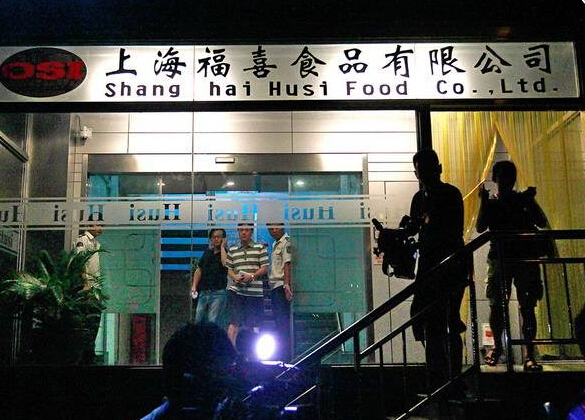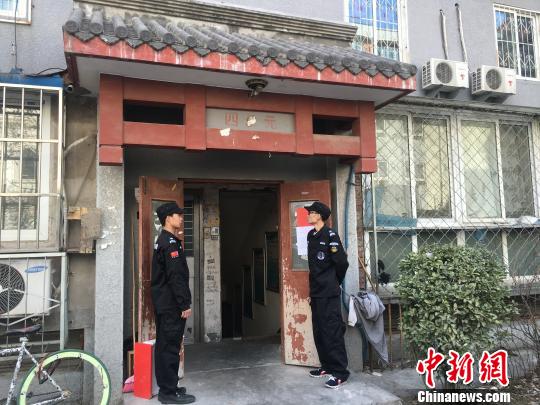Experts and academics are calling for greater policing of schools and for regulations to be drafted to prevent abuse, after claims that teachers in Beijing and Shanghai sexually assaulted students during periods of private tuition.
The attacks attracted widespread public attention and triggered debate about how parents, schools and society in general should protect children.
In January, a junior middle school teacher in Beijing was detained on suspicion of sexually assaulting a 17-year-old female student. The teacher, who previously taught the student math at school, was hired by the family in September 2015 to provide private tuition.
The student claims that the first assault occurred in April last year, followed by more attacks in July, August and December. The teacher is also alleged to have intimidated the student to prevent her from telling anyone about the incidents.
In December, the teacher was caught sexually assaulting the student by a surveillance camera the father had installed at his daughter’s insistence. Once he had seen the footage, the father reported the matter to the police, who are investigating the allegations.
The teacher, who charged 700 yuan ($102) for each hour’s tuition, had been paid more than 160,000 yuan during the previous 14 months.
“If I hadn’t seen it myself, I wouldn’t have believed that a teacher from a well-known school could have done this,” said the girl’s father, quoted by The Mirror.
In a similar incident, a teacher at a private junior middle school in Shanghai was sentenced to two and a half years in prison for sexually assaulting and intimidating a female junior school student during private tuition sessions at his home.
There are no official statistics about teacher-student abuse, but in 2015, the Supreme People’s Court told media in Gansu province that the nation’s courts heard 7,145 cases of child sexual abuse between 2012 and 2014.
Inadequate protection
Xi Xiaohua, executive director of the Beijing Youth Social Work Research Institute, which is affiliated to the Capital Normal University, said the fact that the incidents happened in large cities was “shocking” and “harrowing”. However, she said the parents of the girl in the Beijing incident should bear some of the blame because they left their daughter alone with an adult male.
Yao Jianlong, a professor of law and the director of the school of criminal justice at Shanghai University of Political Science and Law, agreed with Xi’s stance.
“The absence of a parent or guardian is especially dangerous for children, which explains why more sexual assaults on students are found among ‘left-behind’ children,” he said, referring to children whose parents have moved from their hometown in search of work in cities and towns, leaving the children at home.
In the Beijing incident, Yao said the father, who believed the teacher he had hired at great cost was above suspicion, had been unable to identify the potential threat to the child’s safety.
The consequence was that when his daughter told him she no longer wanted to be tutored by the teacher, instead of questioning the man, the father thought the fault lay with his daughter. The father’s failure to act left the girl open to more abuse, according to Yao, who conducts research into the sexual assault of children by adults.
“Parents should never leave young children alone with adults. They should be cautious all the time to ensure that there are no blind spots in the guardianship of children-boys or girls,” he said, adding that boys are also vulnerable to sexual assault.
Xi said children should learn about the dangers of sexual assault and learn techniques to avoid possible threats.
“Our center has provided a lot of self-protection courses for children at schools and communities in Beijing. We explain to the children what constitutes sexual assault, the signs to look for, and how to deal with it,” said Xi, who has spent many years working to raise awareness of the problem among parents and children.
She and her colleagues have long advocated the inclusion of such courses in the school curriculum, but they are a low priority in China’s exam-oriented education system: “Under such circumstances, the onus is on the parents to teach their children how to protect themselves.”
That’s easier said than done, according to Yao. “Chinese parents, including some well-educated people like myself, are too shy to talk about these things. Even when sometimes I want to talk to my son about this, I don’t know how to open the conversation. This situation also needs to change,” he said.


![Yu Changyuan, 78, attends a job fair in Zhengzhou last Saturday for seeking a job to pay for his granddaughter's tuition. [Photo/zynews.com] Yu Changyuan, 78, attends a job fair in Zhengzhou last Saturday for seeking a job to pay for his granddaughter's tuition. [Photo/zynews.com]](http://images.china.cn/attachement/gif/site1007/20170301/b8aeedd129f01a20b38310.gif)